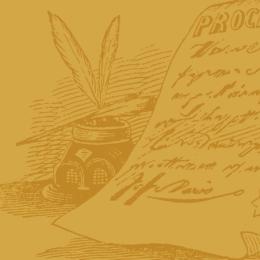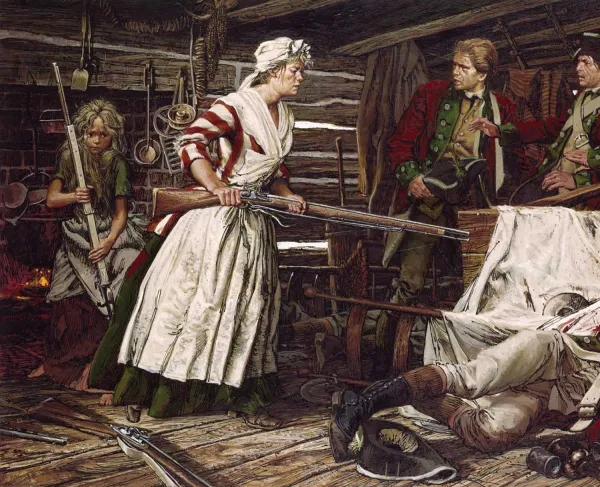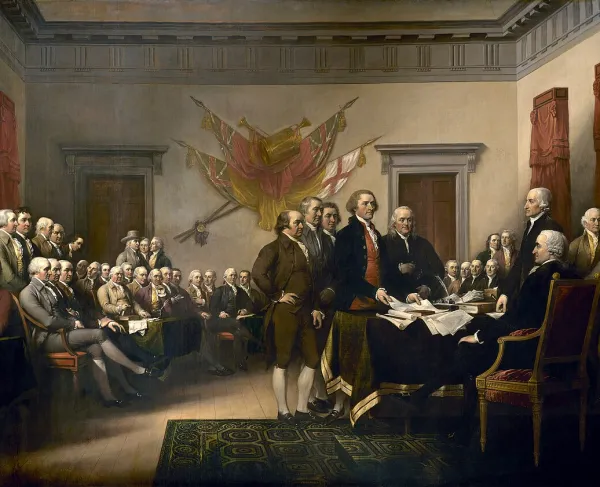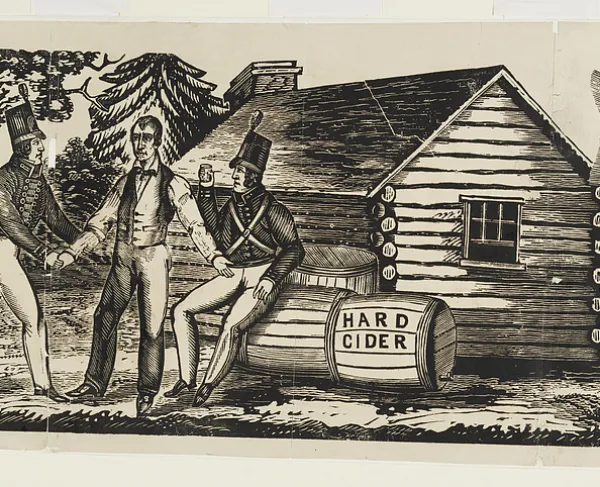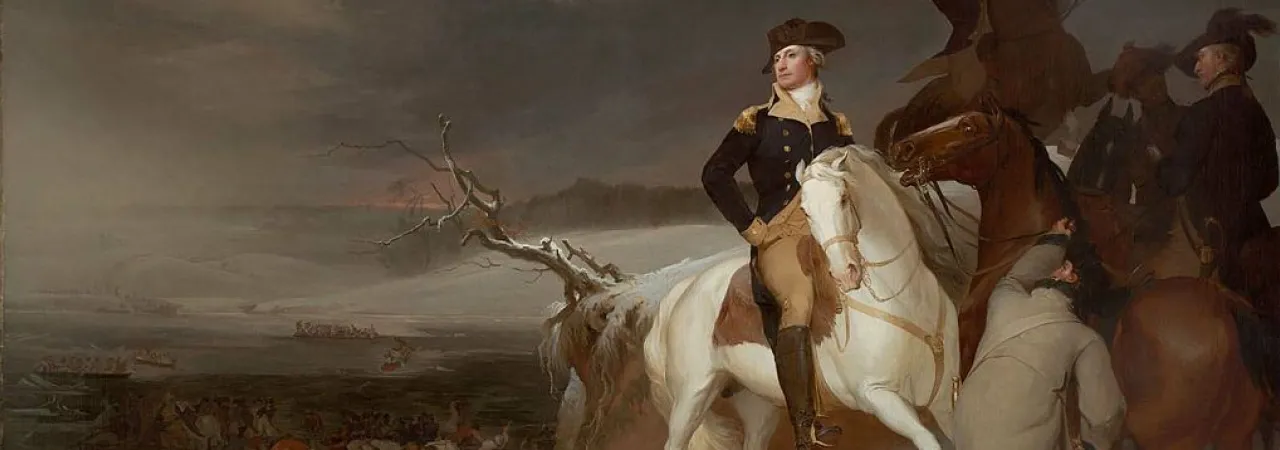
"Passage Of The Delaware" by Thomas Sully
On June 19, 1775, George Washington received his commission as commander in chief of the Continental army from the delegates assembled in Philadelphia, Pennsylvania. The Virginian, 43-years old at the time, embarked on a trip north to the assembled forces besieging the British around Boston, Massachusetts. Arriving in Cambridge, Massachusetts to take formal field command on July 2, 1775, Washington held command until independence was won, resigning his commission to the Continental Congress in Annapolis, Maryland, two days before Christmas in 1783. His ability to see the big picture and evolve his strategy on how to successfully navigate and ultimately win the American Revolution proved to be one of his strongest leadership traits during the eight-years in command.
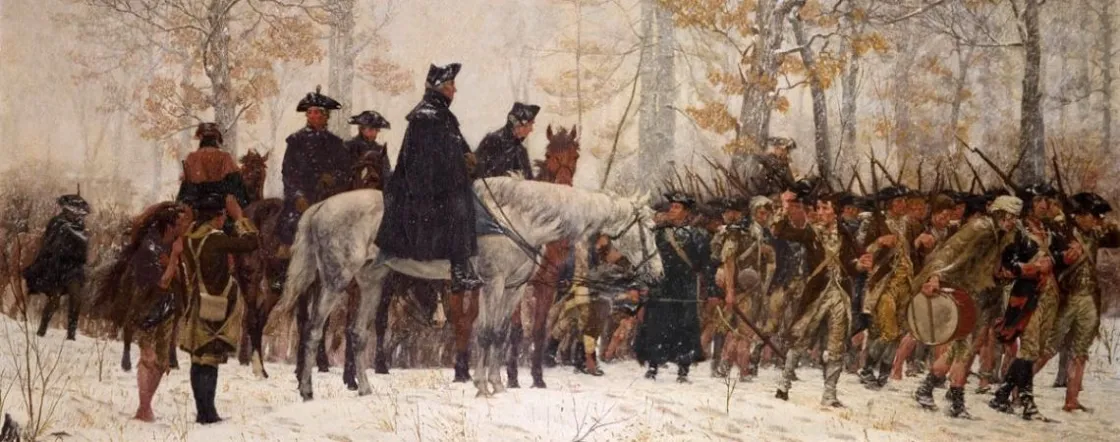
Like any military commander, Washington had his weaknesses as well. When studying Washington as a military leader, a famous adage, “one can lose the battle but win the war” comes to mind. Washington was not a tactical genius when it came to warfare and comparing him to those schooled and trained in the art of military command is unfair to the Virginian. However, Washington eventually turned this weakness into a strength, understanding that he did not have to achieve a great military victory that could decisively end the war; he just could not lose an engagement of that magnitude. Initially, he tried to achieve this level of victory, as his first campaign around Long Island, New York attests. His forces were outmatched, and he was outgeneraled by his counterpart, British General William Howe. This led to losses in manpower and prestige that dragged the cause of American independence into desperation.
From the “times that tries men’s souls,” as the pamphleteer writer Thomas Paine eloquently penned in 1776, Washington showcased a strength of his leadership: the ability to adapt, improvise, and rally. He exemplified this by extricating his men from the precarious situation in New York and commencing the ensuing retreat across New Jersey. His improvisation and daring — a leader should have audacity at times — was evident with his maneuvers to cross the Delaware River on Christmas night, 1776, to attack the Hessian garrison at Trenton; a bold attack that helped revive the American cause. This gamble, highlighted by the use of the the watchwords “Victory or Death” as the call sign, showed Washington’s inner resolve to use weather, surprise, and a sense of desperation to his advantage. Enlistments were set to expire soon for a sizeable majority of Washington’s remaining soldiers, and the attack at Trenton was the type of gamble that favored the bold in times of war. Following that engagement, Washington made a personal plea which showed the connection he had made with his soldiers, as he convinced them to extend their enlistment slightly, leading to another victory at Princeton on January 3, 1777.
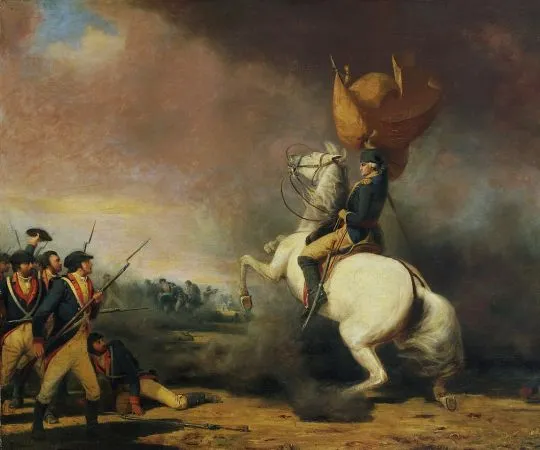
Washington also saw the value of a great military family in the form of an intelligent, well-educated, and highly motivated command staff. Alexander Hamilton, John Laurens, and Baron von Steuben, to name just three, all had posts as aide-de-camps or inspector general, respectively. These men pushed, prodded, and created dialogue that Washington absorbed and synthesized to evolve as a leader. The humility of being able to learn from various sources, put ego aside for the cause, and never lose the ultimate goal was a major strength of Washington’s character. Placing Nathanael Greene as quartermaster general during the Valley Forge cantonment created a welcomed improvement in regards to supplying and provisioning the army for the coming campaign season. Greene used the skills learned on the battlefield and as quartermaster to be a mini-Washington in the southern theater, losing battles but winning the war. Imitation is the greatest form of flattery.
Knowing when to embrace risk was another strength of Washington’s military leadership. Knowing when to avoid risk, the other side of the equation, was just as important to the Virginian. From extricating his army from New York across New Jersey to fight again in 1776, to gaining valuable time in heading south in 1781 to corner the British at Yorktown while fooling the enemy into believing New York was still the target, shows Washington’s mindset. When leading a rebellion against a better trained, better equipped, and stronger enemy, one has to take risks. Trenton, Princeton, snapping at the rearguard at Monmouth in June 1778, and then the entire campaign for the successful siege of Yorktown all show Washington’s penchant for risk.
Historians debate Washington’s grasp of the military arts, comparing him to the great 18th and 19th century military leaders, such as Frederick the Great or Napoleon. In those comparisons Washington will always fall short. He did not have the tactical acumen or a deep knowledge of strategy and military doctrine of the time. Those are weaknesses of his though no fault of his own, however, as he was denied a British military commission and lack of formal schooling past age eleven. Washington did also fixate on the recapturing New York, the scene of one of his worst defeats during the war yearning to erase this humiliating defeat from earlier in the American Revolution. Yet, what general did not want to erase a stinging reversal that marred their reputation?
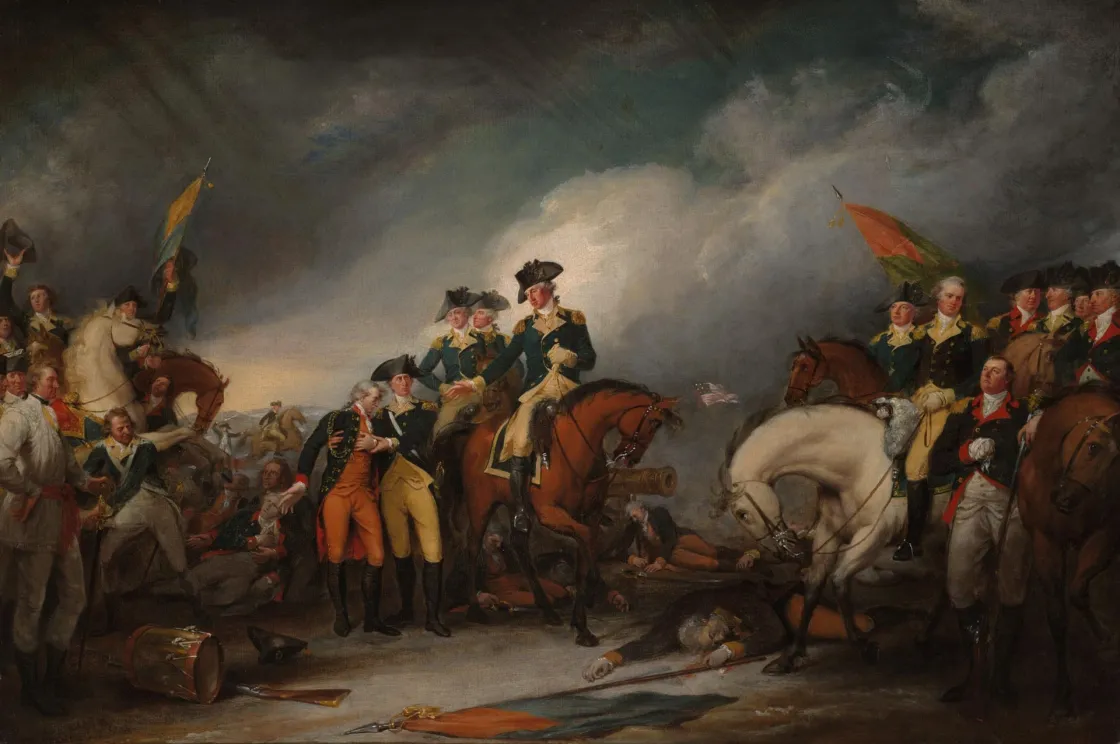
From the benefit of hindsight one can dissect the flaws of Washington’s military leadership. However, his strengths were on display throughout the eight years of war in many instances. The ability to keep an army in the field; to change his belief in how to win the war, from a pivotal massive battlefield victory to a Fabian strategy of retreat; to strike at separated elements of the enemy; and to embrace strategic retreat to conserve manpower and army cohesion all highlight his strengths. Washington fought his natural temperament to see the bigger picture and not lose sight of the focus and goal of fighting: winning American independence from Great Britain.
In conclusion, the ultimate strength of a military leader is recognizing what will win the war while not sacrificing the causes that led to the conflict. In both, Washington succeeded. He won the war for American independence and submitted to political oversight of the military. In that he showed his true strengths as a military leader.
